
















Inquire About Pricing And Availability
You CAN have it ALL in ONE speaker!
Keynote Speaker Garrison Wynn, CSP
MOTIVATION – ORIGINAL HUMOR – CUSTOMIZED CONTENT
A relevant speaker who connects on the real issues of influence, leadership, teamwork, employee experience, safety, and change.
LEARN HOW INNOVATIVE INFLUENCERS
- Drive and embrace change.
- Get buy-in and show value.
- Attract and keep top talent.
GARRISON IS WELL KNOWN FOR
- Holding the audience’s attention.
- Getting big laughs that make a point.
- Giving Relevant, proven takeaways.
With talents that established him as a Fortune 500 leader and professional stand-up comedian, Garrison Wynn, CSP, fuses comic timing and research to deliver motivational business expertise. For 20 years, he has given keynote presentations to clients (such as American Express, Oracle, Caterpillar, the NFL and NASA) at corporate and association events. He is the author of the Amazon bestseller The Real Truth about Success, the Amazon #1 bestseller The Cowbell Principle, has been a weekly contributor to the Washington Post and featured in Forbes and Inc. Magazines. In his teens he debuted the world’s first video gaming system (Odyssey) with baseball legend Hank Aaron and as a young man spent 6 years touring comedy clubs with the top names in the business. He went on to become the youngest department head in a Fortune 500 company’s history where he researched and designed processes for 38 company locations nationwide and developed & marketed products still being sold in 30 countries.
Garrison's Top keynotes
Keynote Speaker Garrison Wynn, CSP
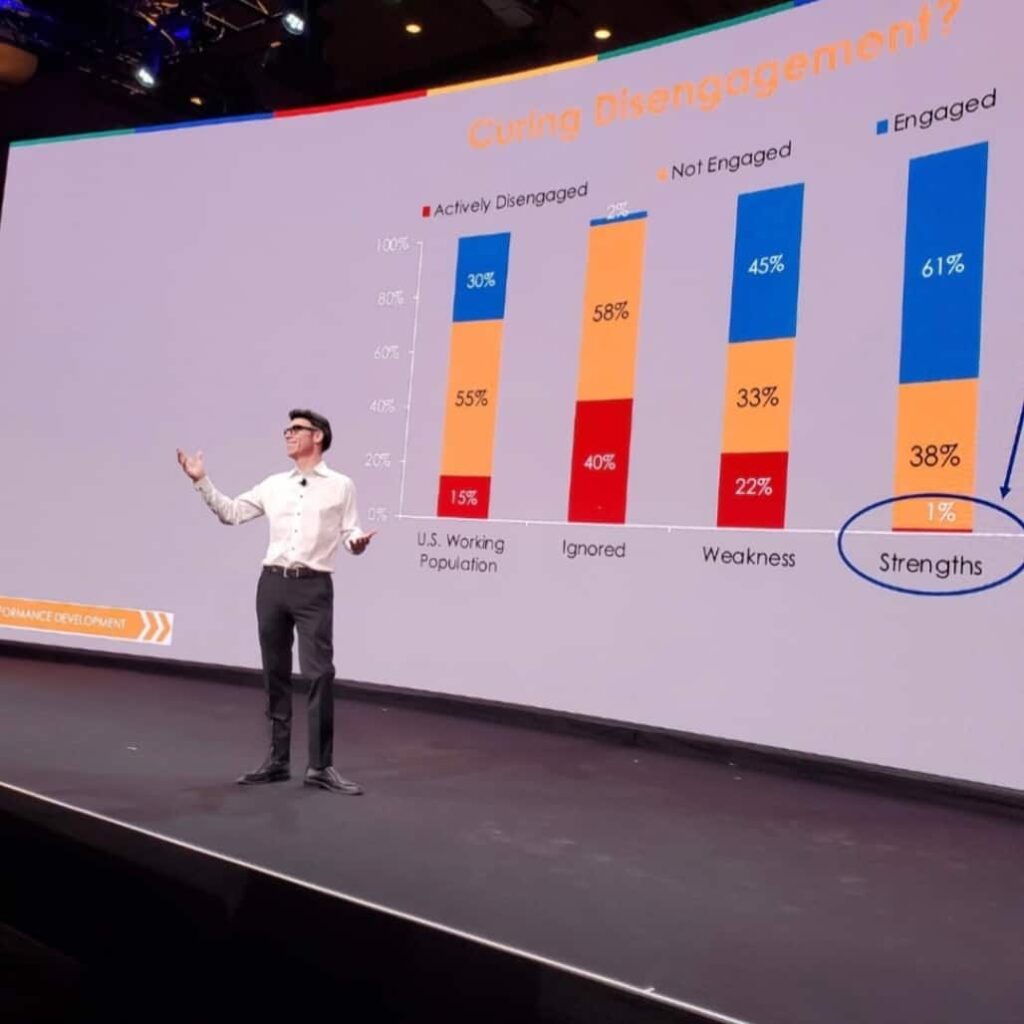
Change is Mandatory… Stress is Optional!
This fast-paced, entertaining keynote creates an emotional shift for attendees as they see how much control they have over how change affects them. It also shows that stress is more about what we believe than it is about what is happening. It gives the specific communication tools that anyone can use to dramatically reduce resistance to change, employee turnover, and difficult behavior. From market challenges, employee engagement issues and just embracing everyday work and life problems, this research-based program takes a fun look at a very serious topic.
- Curing disengagement
- How to get “buy-in” on change quickly
- Reducing stress and increasing focus: what’s working
- Working from home with no distractions
- Keeping and attracting employees
- Managing emotions: separating the data from the drama
- Dealing with the resistance to change
- Change is easy… you go first!

CREATING A CULTURE OF LOYALTY
Reducing employee turnover and job dissatisfaction
This highly focused, entertaining session shows leaders and influencers at all levels how to consistently create a sustainable culture of loyalty. This is not the view from 30,000 feet; it’s a high-energy, direct connection to the tools and tactics that are dramatically improving employee retention right now.
This program is a fun “experience” designed to provide you with actionable ideas and solutions that will assist in driving a sustainable culture that will help your organization to achieve its goals by keeping and attracting the people you need to succeed.
- Making sure your people feel valued and supported daily
- How to be right without making people wrong
- Forensic listening: Listening to those who have not felt heard in the past
- Eliminating quiet quitting by improving the employee experience
- Making work worth it: Fix the job, not just the worker
- Managing expectations and emotions

Remotely Awesome Leadership
How to manage faraway teams with near-perfect results
Without the personal power of onsite encounters, weekly or daily meetings, and the ability to visibly connect and track what people are doing, employees can feel uninformed and distracted. Good remote leadership requires a specific insight that creates a culture of commitment and productivity. And while email, phone, IM, voice text, and Zoom help a lot, those are just the tools to get a job done and not the solutions that will achieve your goals. This fun, heavily researched and virtually delivered session provides the actions and insights that allow leaders to be influential regardless of location.
- Communicating what a good job looks like when it’s finished — not just the steps to get there
- Creating clarity and developing a culture of timely communication
- Removing homebound worker distractions
- Improving productivity without micromanagement
- Remotely managing activities and goals
- Building and maintaining motivation
- Creating trust that fuels engagement and performance
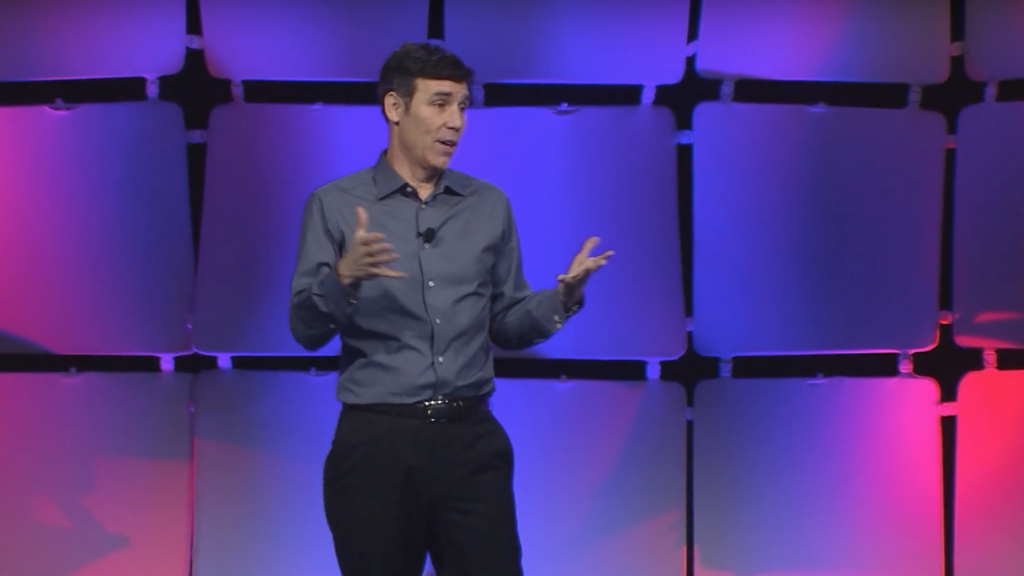
Value-Based Leadership
Making Employee Engagement Actually Happen
We hear the term “employee engagement” a lot these days; we also hear how recognition, goal alignment and a clear path to success can create it. But how can an individual positively influence the opinions of his or her employees and coworkers have about their job? This highly entertaining session, backed by Evolve Performance Group research across 46 countries (and combined with over 70 years of Gallup survey data) shows that the thing people value most is feeling valuable! It gives the specific communication tools that anyone can use to dramatically reduce resistance to change, difficult behavior and employee turnover. The impact of this program reaches far beyond the session itself, creating an emotional shift that fuels immediate implementation.

Finders Keepers
How to identify, attract, and retain a loyal workforce.
From developing a marketing campaign to attract the people you need to making sure they have a culture that makes them feel valued, this thoroughly researched program (Gallup, Harvard Review and Evolve Performance Group) gives you the tools to solve your labor problem and consistently improve employee performance.
Easily Customized Segments Include:
- The 3 reasons why Gen Y doesn’t want to work for you and what you can do about it.
- How to quickly develop and maintain a culture that keeps and attracts top talent.
- Getting people to choose your organization when the competition can afford to offer higher pay.
- Making sure the employees you want to attract know you exist and branding your organization as a great place to work.
- How to create a social media and advertising campaign that shows why your company is a good fit for the people you want.
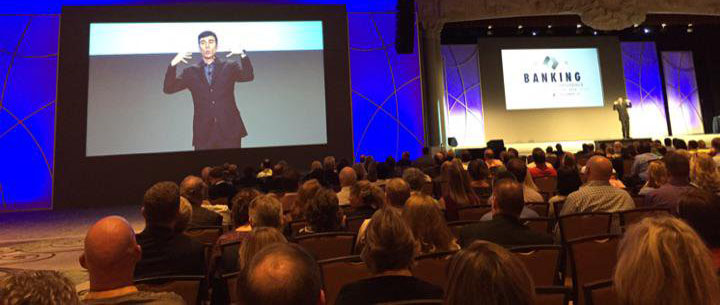
The Real Truth About Success
What The Most Influential Do Differently And Why They Won’t Tell You
Prepare to laugh and learn as a decade of Wynn Solutions research reveals what makes owners and managers of top-performing businesses now in the time of COVID so effective – and it’s not what you’d expect! If you enter this keynote session expecting to learn all about best practices and superior strategy, you’d better read the title again. Standout success in a challenging environment/economy often comes from personal advantage, whether it’s perceived value, personality, leadership-style, communication skills, allocation of resources, or access to privileged information. This entertaining session takes a realistic look at the influence you’ll need to make sure your knowledge and hard work deliver the results you want.
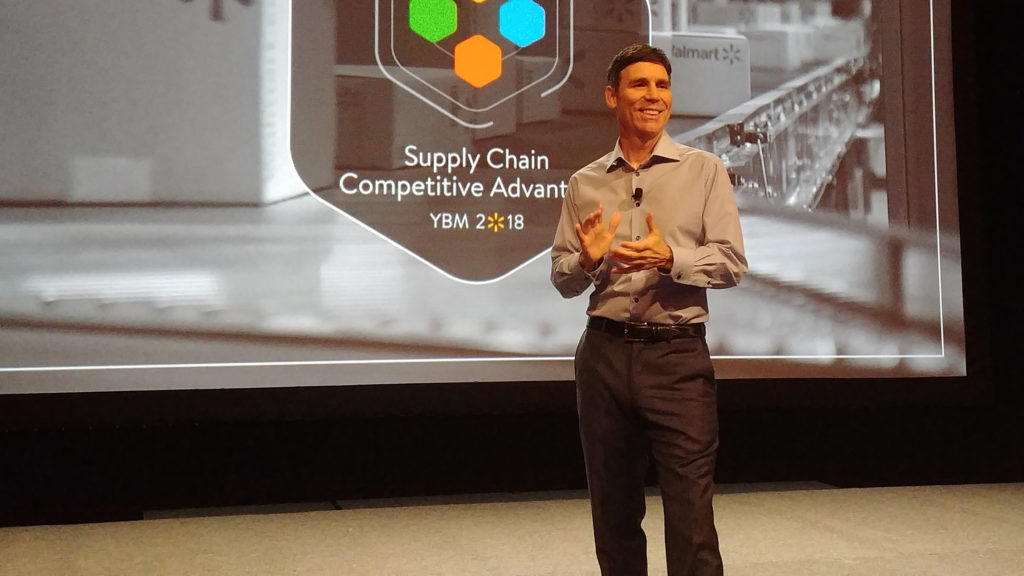
Making the Most of Difficult Situations
Action and Adaptability Create Opportunity
This funny, insightful keynote combines relationship-building with no-fluff motivation and change to deliver real solutions in uncertain times. Garrison examines the challenges we face (from post-COVID-19 issues to communication breakdown) and shows how we can laugh at our problems while using them as catalysts for success. This session covers a lot of ground and provides no-cost, researched-based, easily implemented, proven solutions that your people can use right away.
Easily Customized Segments Include:
- New people, new products and new approach
- Dealing with new leadership direction
- How to get “buy-in” on change quickly
- Communication breakdown: overcoming silo-ism
- Nobody wants to be a “senior beginner”
- Embracing mergers and acquisitions
- Dealing with the resistance to change
- Technology changes and procedural shifts
- Change makes us better?

Winning the Talent War
Keeping and Attracting Young Top Performers
People in their 20s don’t want what their parents wanted from a job. Also, many Gen Y “potential employees” would rather work temporary jobs (through staffing companies) than commit to a company full time. This means there are far fewer people looking for jobs than anticipated. That means more jobs than job seekers (for the first time since this kind of data has been gathered) creating a “War” for top young talent. And they are not lining up for labor jobs (where you might get your hands dirty} even though they pay four times more than the job they took at the mall! They are also more likely to live at home and less likely to put up with a work environment that cramps their style. Attracting the young people needed to replace your retiring workforce (and making sure they stay long enough to make a difference) is crucial for your organization’s future.
This entertaining yet heavily researched program shows business owners, leaders and managers how to adapt their organization into a company young people want to work for and how to establish a culture they do not want to leave. Besides actually having a work force 10 years from now, the benefits include improved performance and heightened accountability from the millennials who represent your company’s future.
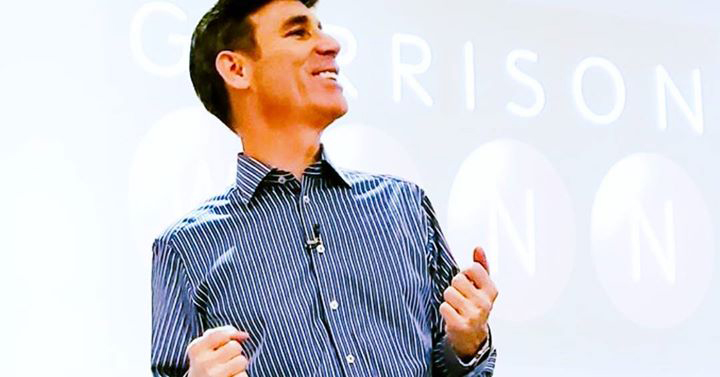
What the Most Influential Sales People do Differently
The Inside Track To Rapport Building, Buying-Sign Intuition, And Clarity Of Value that Seal the Deal!
Drawing on 24 years of research and interviews with all the Fortune 500 firms, this program is rooted in rainmaker pandemic proof tactics that set the world’s top salespeople apart. The program teaches people to close and gives them the tools and confidence to be viewed as the customer’s valued resource. This is not sales theory as viewed from 30,000 feet, or the science of selling. Instead, it focuses on the personal influence techniques of the world’s top producers in every industry. This session is about what motivates consistent closers to ask for the business and the teachable skill sets to make it happen. Any seller, from the eager newbie to the seen-it-all, hard-to-impress veteran, leaves with huge takeaways. This customized, entertaining, inspiring program creates the mindset necessary to get maximum impact from the tactics taught.

Inclusion + Tolerance = Success
Creating a diverse culture that drives performance
Having a culture that includes and supports all people is more than just a moral obligation. It is a critical and commonly overlooked ingredient for success. An alloy is stronger and has more applications than something made of just one material, and research shows the same is true for high-performance teams.
This entertaining session (heavily supported by research from Gallup, MIT and Rutgers) shows that tolerance leads to awareness and understanding that creates long-term value. From attracting top young talent with a culture they’ll support to fostering the diversity of thought that is the foundation of creativity, this high-energy program is a great kickoff keynote or closing session for your Inclusion and Diversity Conference.

Innovative Influence
- Drive and embrace change
- Get buy-in and show value
- Attract and keep top talent
Innovation fuels this research-driven, highly entertaining session, customized to provide the influence tools you need to communicate value effectively. By session’s end, leaders, business developers and team members acquire the insight and strategy to create a sustainable, disruption-proof culture. Whether you’re riding a new trend or shaking off past challenges, you can create the kind of influence that not only drives change, it makes your organization attractive to customers and today’s top talent … so you never stop getting better!
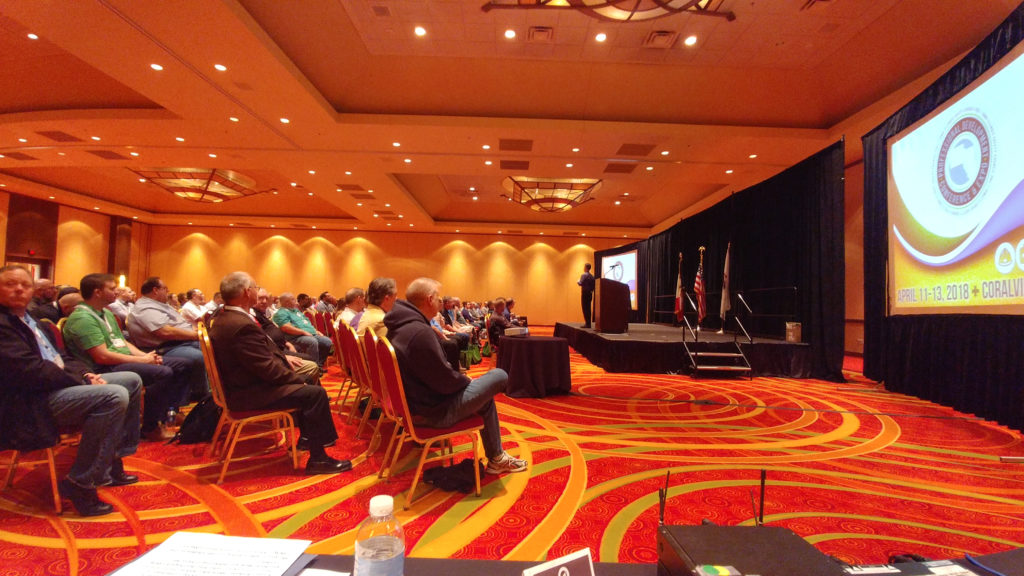
Being the Best vs. Being Consistently Chosen
Success is more than being good at what you do; it’s about being consistently chosen to do it. Garrison helps people to understand why their products, services, or leadership styles or those of their competitors are selected. People don’t necessarily choose what’s best; they choose what they are most comfortable with, whether it’s the best or not. We’ve all heard the importance of best practices and superior knowledge, so why the smartest people with the most information aren’t always number one in their field? This keynote provides original research on managing expectations and emotions and shows there really is more to success than being the best.

MASS MUTUAL
Garrison recently spoke at our MassMutual Academy for almost 800 Financial Advisors in Phoenix, AZ. Garrison’s energy, passion, endurance and connection with the audience was beyond impressive. His message was relatable and his humor kept the audience’s attention for the entire presentation. He was the perfect choice for a closing speaker after a 4 day learning conference for our group. From the moment he came into the room to the moment he left the conference his focus was on our attendees and his professionalism did not go unnoticed. Our attendees left his presentation energized and excited about his message and his performance. We have already received a tremendous amount of positive feedback on Garrison’s presentation and many General Agents want to hire him for agency presentations. Garrison hit it out of the park!

INTEL
Excellent talk! Enjoyed your sense of humor, energy, and the quick stories that drove the points home. You did a great job weaving in those Intel specific points!

PRECISION TUNE AUTO CARE
By overwhelming consensus, Garrison was rated as the best speaker ever for our group. He did a phenomenal job, and our team laughed, had fun, and learned a lot! We were most impressed by his ability to read the room, engage with his audience, and adjust his style to keep our team at the edge of their seats. Also, as an extra bonus, he was as personable off-stage as he was on-stage. We highly recommend him!
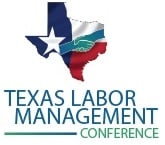
TEXAS LABOR MANAGEMENT CONFERENCE
Garrison has once again delivered a great presentation to our conference. His keynote was on point with the message that we were hoping to use as a foundation for the rest of our conference. The feedback from the session was rated “excellent” with comments such as “Presentation was great on how to move forward as a society [after the pandemic]”.

ARBY'S
Well, back in the office, and the event is being called “The Best Ever!” by our executive team. Motivational speaker Garrison Wynn is a pro’s pro. He took our pre-con conference call, and unlike past presenters, was able to weave our theme and our core culture points of “Commitment – Humility – Respect” throughout it, and he did so with ease and continuity while entertaining the audience continuously. But like I said, not only did the audience enjoy him, but our executive team knew we made the right decision to put him on first . Using our past keynote presenters as reference points, they felt Garrison was indeed the best, and able to adapt his speech to our message.

THE ROYAL BANK OF SCOTLAND
This is by far the best keynote we have ever had. This is a tough group of seasoned professionals, so our choice of motivational speaker was critical to ensure our objectives were met. You did an excellent job of addressing the specifics we identified and accomplished that with humor and grace. Getting everyone on the same page, being really funny and focusing on a repeatable process for communication was the key. Most importantly, feedback from our staff was highly positive and we have had a 23% increase in sales.

AMAZON
They absolutely loved you! Captivating yet influential and motivational, Garrison far exceeded expectations and was exactly the type of keynote speaker we were hoping for – still being talked about months later.

LOCKHEED MARTIN
Garrison was a hit with the 400 members of Generation Y attending the conference. The reviews were wonderful. The audience enjoyed getting a leadership message in an entertaining way, with research behind the theories and thoughts. Garrison was able to relate to our audience and keep them engaged while conveying important messages essential to their future success. We would highly recommend Garrison Wynn, and will certainly be using his services again for future conferences.

VERIZON
The response was phenomenal. We believe you made a real difference in the morale and education of our people. Thank you for the effort you put into your research. Knowledge of our industry was the key. Many have personally benefited from your relationship approach, and have increased average monthly performance by approximately 25% accordingly.

CARRIER CORPORATION
I just wanted to say how AWESOME Garrison’s keynote speech was at the Carrier meeting in Portland Oregon!!! It’s the best delivery & message we have ever seen BAR NONE! We were enthralled every moment!

NAPA AUTO PARTS
You have a great responsibility to select motivational speakers that will hit a home run with your audience. We were looking for two things in a keynote speaker… humor and an impactful message. Garrison did a great job researching our customers and making every topic he touched on relatable. His humor was right on…and his message was powerful. Selecting speakers for conferences can be an inexact science. Save yourself the time and effort and just hire him to speak at your meeting. You won’t regret it.

CATERPILLAR
Your presentation to our team allowed us to produce some of the most successful and profitable years in the history of Caterpillar. The impacts of your work are still in force today. We would highly recommend Garrison Wynn to help any company make the necessary transition that we have successfully made.

WALMART
I just wanted to take a quick moment to share how wonderful it was to meet and work with Garrison. He was a true professional from the beginning to the end. If I were asked to pick a handful of words to describe him I immediately think of: flexible, accommodating, friendly, professional, quick-witted, intuitive, and hilarious. He was extremely thorough in asking questions and very in tune to the topic of the meeting. He tailored a message that was spot on in the material, highly engaging and humorous in his delivery. He held the audience’s attention captive the entire time he was on stage! After working with Garrison I would strongly recommend him for any future event, either inside or outside of our company.
VIRTUAL PROGRAM OPTIONS
As an experienced virtual presenter, Garrison can deliver any of his keynotes in multiple formats depending on your specific needs.
“Excellent talk! Enjoyed your sense of humor, energy, and the quick stories that drove the points home. You did a great job weaving in those Intel specific points!” – INTEL
“Great virtual presentation! We really like what Garrison said, and appreciate how pertinent the subject was to what we are living every day.” – IPSEN PHARMACEUTICALS
“Garrison’s animated and genuine style is perfect for virtual events! – MOLSON COORS BEVERAGE COMPANY
“You were great! Some wonderful chat messages. You were fantastic as usual.” – NATIONAL RURAL BROADBAND ASSOCIATION
“The best delivery & message we have ever seen BAR NONE! We were enthralled every moment!” – CARRIER CORPORATION
“THANK YOU! We have gotten lots of great feedback and loved the Q & A discussion afterward. – ACCENTURE
“Loved the energy!!! It went great! We have only heard positive feedback.” – WORLD SIGN ASSOCIATES


















